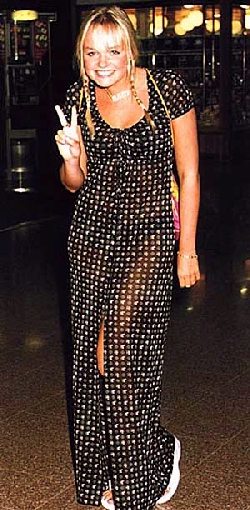Brit Babes' fave
Corporate Criminals
Hey Guys! Check out our hot selection of corporate misconduct!
Babes and corporate crime, two popular topics on the web, here together for the first time (as far as we know)! We asked sexy British babes about their favourite examples of corporate crime and here are the exclusive results of our sizzling survey.
Featuring:
 Kelly Brook on F. Hoffman La-Roche
Kelly Brook on F. Hoffman La-Roche
 Julia Sawalha on ADM
Julia Sawalha on ADM
 Liz Hurley on British Airways
Liz Hurley on British Airways
 Danielle Brown on Daiwa Bank
Danielle Brown on Daiwa Bank
 Louise Nurding on Banker's Trust
Louise Nurding on Banker's Trust
 Baby Spice on ICI
Baby Spice on ICI
 MORE BABES: Zoe Ball, Sharlene Spiteri, Samantha Janus, Melinda Messenger, Claire Goose, Denise Van Outen, Martine McCutcheon
MORE BABES: Zoe Ball, Sharlene Spiteri, Samantha Janus, Melinda Messenger, Claire Goose, Denise Van Outen, Martine McCutcheon
 Contact information for the Lobster Party
Contact information for the Lobster Party

Kelly Brook on F. Hoffman-LaRoche

Kelly notes that the Roche Corporate Principles, amended on September 27, 1999, state:
"Obligation to society
We want to maintain high ethical standards in our business dealings and in our efforts to protect the environment. We will also maintain these standards in adhering to local, national and international laws, in co-operating with authorities and in communicating with the public."
They also recently said: "Roche today announced it has reached a settlement agreement with the US Department of Justice regarding past pricing practices of its Vitamins and Fine Chemicals Division. Roche will pay a fine of USD 500 million with respect to those charges." (Roche Press Release 20 May 1999)
Kuno Sommer, who was Director of Marketing of the Vitamins and Fine Chemicals Division until the end of 1997, pleaded guilty and agreed to serve a four-month prison term and pay a $100,000 fine. Roland Brönnimann, Head of the Vitamins and Fine Chemicals Division left the company in May 1999.
Roche reported in its 1999 half-year report that an additional provision of $640 million (including legal costs) had been recorded in view of private law suits in the US from customers. On November 3, 1999, it announced that a settlement had been reached that involved Roche paying $632 million to customers, subject to final court approval.
The cartel was 'the most pervasive and harmful criminal anti-trust conspiracy ever uncovered', according to Joel Klein, who heads the US justice department's anti-trust division.
Mr Klein said the price fixing cartel 'hurt the pocket book of virtually every American consumer, anyone who took a vitamin, drank a glass of milk, or had a bowl of cereal'. Evidence gathered by US investigators in the vitamins cartel showed that the companies dictated all aspects of vitamin sales. The cartel's executive met annually to fix a budget in an arrangement known by some participants as 'Vitamins Inc'.

Julia Sawalha on ADM

Julia also picked a price fixer as her favourite corporate criminal: the giant U.S. food processing concern Archer Daniels Midland Co.
In the United States in 1996 in Archer Daniels pleaded guilty to two counts of price-fixing of citric acid and lysine and paid 100 million US dollars in fines - a record anti-trust penalty at the time. In May 1998 they were hit for a further 16 million Canadian dollars, for charges related to the period from 1992 to 1995.

Liz Hurley on British Airways

Jet-setter Liz plumped for BA for the great range of its offences, including its four million pound fine in July 1999 for illegal trading.
The European commission said that BA had illegally provided cash incentives to travel agents to steer passengers to buy the airlines' tickets. The commission said that the incentives were "clearly illegal" and that the practices BA had engaged in had prevented UK air travellers from benefiting fully from the effects of EU efforts to liberalise air transport in Europe.
In the famous "dirty tricks" campaign it waged against Virgin five years ago, BA was fined £600,000 and forced to pay legal costs of £1.5m.
However, Liz was also intrigued by a number of smaller convictions, including 1998 offence relating to the import of an animal (guilty pleas, fined £2000 and £90 costs.)
According to the Sunday Times, British Airways cabin staff on flights from London to Singapore, Hong Kong, Tokyo and other long-haul destinations have been cheating passengers by switching real watches, perfumes and other luxury duty-free goods for counterfeits - a scam confirmed by BA.
It was The Sunday Times that had earlier revealed that BA was charging its British passengers up to 190% more than other Europeans who book from the Continent to travel on the same long-haul flights.
In August 1999, British Airways was ordered, in France, to pay four million dollars to 61 French passengers whose plane made an unexpected stop in Kuwait the day the Gulf War began. The passengers were taken hostage by Iraq, who used them as ''human shields'' against U.S.-led bombings. France's highest court ruled that British Airways had exposed the passengers, who were headed from London to Kuala Lumpur, Malaysia, to the risk of war ''without good reason.'' That, the court found, was a violation of the airline's obligation to ensure its passengers' security.

Danielle Brown on Daiwa Bank

We go back to 1996 for Danielle's pick's naughtiness. Daiwa Bank pleaded guilty to conspiracy charges, paid a 340 million dollar fine and closed down its U.S. operations. The fine was the largest ever against a financial institution in the US on criminal charges. Daiwa pleaded guilty to 16 criminal counts of fraud, deception and other charges stemming from the illicit cover-up of $1.1 billion in losses at its New York branch over a 12-year period.
In October 1996, the former general manager of Daiwa Bank's New York branch was sentenced to two months in jail and fined $100,000 for hiding $1.1 billion in losses from unauthorised bond trades. Masahiro Tsuda was one of two Daiwa employees charged in the attempt to conceal 12 years worth of government bond trading losses from federal regulators before the Japanese bank revealed the coverup last summer.
Tsuda pleaded guilty to one count of conspiracy to defraud government regulators. He admitted helping the bank hide losses run up by Toshihide Iguchi, former executive vice president of the New York branch. Tsuda also had to serve a year of supervised release in Japan, and continue to help the government's investigation.
Iguchi pleaded guilty nearly a year previously to charges that include misapplication of bank funds, money laundering, and conspiracy.
Daiwa executives approved the cover-up, Tsuda claimed, and actually wanted to wait longer before telling U.S. officials.
Tsuda also admitted that he participated in a separate scheme to conceal $30 million in losses that occurred as a result of unauthorised trading at Daiwa Bank Trust Co. unit in New York in the mid-1980s.
Under US federal guidelines, Tsuda could have been sentenced to four to 10 months in prison. The charge to which he pleaded guilty carries a maximum term of up to five years in prison and a $250,000 fine. A defence plea to impose a light sentence because "cultural differences" between Japan and the United States accounted for Tsuda's willingness to follow his superior's orders at Daiwa Bank was rejected.
The total amount paid ranked as the fourth largest against a financial institution operating in the United States. Drexel Burnham Lambert Inc. paid $650 million, BCCI paid $550 million and Prudential Securities paid $370 million. But those amounts include restitution money as well as fines.
Daiwa partly blamed Japan's Ministry of Finance for its decision to keep the scandal quiet from U.S. authorities for two months. Daiwa lawyer Judah Best told the court that the agency advised it against immediately disclosing the losses because of the fragile state of the Japanese banking system, which is struggling against a huge portfolio of bad loans.
The company had faced up to $1.3 billion in fines, or about four times the plea amount, if it had been found guilty at trial. The charges included obstructing examinations of its branches, making false statements to federal authorities and forging records.

Lousie Nurding on Banker's Trust

The simplicity of the idea is what led Louise to select Banker's Trust. Banker's Trust agreed in March 1999 to pay 63.5 million US dollars in fines to settle charges that it boosted its financial performance by unlawfully diverting millions of dollars from unclaimed customer accounts into its own coffers.
The plea, entered by a bank lawyer before a federal judge, brought a speedy resolution to accusations that the bank made false entries in its books to conceal the true source of 19.1 million US dollars its employees diverted. Bankers Trust were to pay 60 million dollar fine to federal authorities as well as a 3.5 million dollar fine to the state of New York.

Baby Spice on ICI

Emma chose ICI for their "polluter power." Proudly heading The UK Environment Agency's list of shame, ICI shelled out £382,500 - peanuts compared to some of the other Babes' choices, and inconsequential compared to the corporate giant's profits.
The breakdown:
12 March 1998 - fined £300,000, with £51,192.86 costs, for polluting groundwater at its site in Runcorn, Cheshire, with almost 150 tonnes of chloroform.
26 June 1998 - fined £80,000, with £18,754.93 costs, for the accidental release of 56 tonnes of trichloroethylene (a metal cleaning chemical) at its Runcorn site in Cheshire. Thirty tonnes of evaporated to air, and about one tonne entered the nearby Western Canal.
6 October 1998 - fined £2,500, with £1,267 costs, for allowing 200 tonnes of Naphtha to escape from underground storage cavities at its Brinefields site at Cleveland. The Naphtha sprayed across marshland killing birds, fish and vegetation. 
Contact Information
[email protected]
The International Lobster Party Website
Back to top

Last Revised: 17 December 1999

![]() Kelly Brook on F. Hoffman La-Roche
Kelly Brook on F. Hoffman La-Roche




